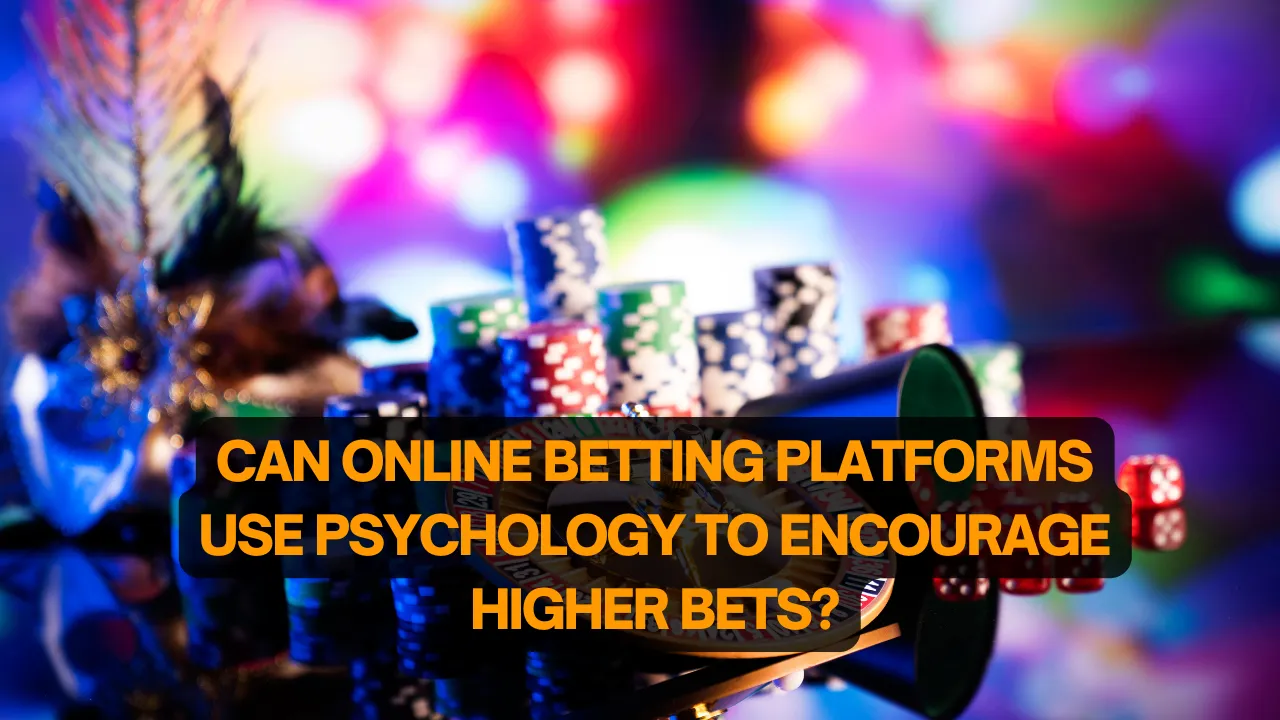The world of online betting has grown rapidly over the past decade, attracting millions of players worldwide. The digital environment has allowed platforms to offer not just convenience, but also carefully designed experiences that can influence how much players wager. This leads to an important question: can online betting platforms use psychology to encourage higher bets? From my research and experience in observing both traditional casinos and digital platforms, the answer is a resounding yes—and often in more subtle ways than players realize.
The Psychology Behind Betting Behavior
At the heart of any betting activity is the human brain’s response to risk, reward, and uncertainty. Gambling taps into core psychological mechanisms such as the dopamine-driven reward system. Each time a player wins, even if it’s a small amount, the brain releases dopamine, reinforcing the behavior and encouraging repeat play. This is why the “near miss” phenomenon—when a player almost wins—can be so powerful. Even without a win, the brain often interprets it as encouragement to continue betting.
Online platforms understand this dynamic and build environments that keep players engaged. Just as traditional casinos use bright lights and sounds, online platforms use animations, celebratory graphics, and carefully timed feedback to give players the sense that a win is just around the corner.
Reward Structures and Incentives
One of the most effective psychological tools in online betting is the use of reward structures. Bonuses, free spins, and loyalty points create a sense of value and progress. Players feel they are “earning” something in addition to their wagers, even when the actual monetary value may be limited.
The psychology here is similar to what we see in video games: players are motivated not just by the outcome, but by the idea of unlocking levels, badges, or rewards. Betting platforms leverage this by offering tiered loyalty schemes, which encourage players to bet more in order to reach the next level. It is less about the actual reward and more about the human desire to achieve and progress.
The Role of Fast Payouts and Trust
Another psychological factor that significantly affects betting behavior is trust. Players are far more willing to place larger bets if they believe the platform will honor their winnings quickly and securely. That’s where reliable features such as casino uk fast withdrawal come into play. When a site demonstrates efficiency in payouts, players feel more confident that they can enjoy their winnings without unnecessary delays, which in turn can encourage higher stakes. In this way, trust and transparency directly influence betting psychology.
The Illusion of Control
A fascinating element in gambling psychology is the illusion of control. Many players believe their choices can influence the outcome of fundamentally random events. For example, picking specific numbers in roulette or selecting cards in blackjack creates a sense of agency, even when the odds remain the same.
Online platforms amplify this by offering interactive elements. Games often allow players to customize settings, select bet sizes, or choose bonus paths. While these options do not necessarily change the house edge, they provide a feeling of control, which encourages players to remain engaged and continue betting at higher levels.
Social Proof and Community Influence
Humans are social creatures, and we often look to others when making decisions. Online betting platforms integrate social proof in various ways, from leaderboards showing big winners to live chat functions that create a sense of community. Seeing others succeed can trigger a powerful psychological effect known as “FOMO” (fear of missing out). Players may increase their bets, hoping to match the success of others they see online.
Community-driven games, such as live dealer experiences, heighten this further. The presence of a live dealer and other participants adds a layer of social validation, encouraging players to stay longer and wager more.
Variable Rewards and Uncertainty
The concept of variable rewards is a cornerstone of gambling psychology. Unlike fixed rewards, which are predictable, variable rewards create a cycle of anticipation and surprise. Players do not know when the next win will come, and this uncertainty keeps them invested. Psychologists have long noted that variable reward systems are among the most powerful motivators of human behavior, which explains why slot machines—online or offline—remain so popular.
Platforms design these experiences carefully. The frequency of small wins, the thrill of larger but rarer payouts, and the occasional “near miss” all combine to create a psychological environment that compels players to keep betting.
The Use of Personalization and Data
Modern online platforms go even further by using data-driven personalization. By analyzing a player’s betting patterns, platforms can tailor offers, bonuses, and even game recommendations to suit their behavior. This creates an experience that feels customized, increasing engagement and encouraging higher wagers.
For example, if a player frequently bets on sports, the platform may highlight special promotions or odds boosts related to their favorite teams. This personal connection creates a sense of exclusivity and relevance, making players more likely to bet larger amounts.
Ethical Considerations and Player Responsibility
While the psychology behind online betting can enhance player enjoyment, it also raises ethical questions. Encouraging higher bets through psychological techniques can lead to problematic gambling behaviors if not managed responsibly. Many jurisdictions now require platforms to include responsible gambling measures, such as deposit limits, self-exclusion tools, and clear messaging about risks.
From a player’s perspective, understanding these psychological tactics is empowering. By being aware of how platforms design experiences, individuals can make more informed decisions and avoid being swept up by manipulative design. Responsible gambling is ultimately about balance: enjoying the entertainment value without letting it affect financial or personal well-being.
My Take on the Future of Psychology in Betting
As online betting continues to evolve, I believe the psychological techniques will become even more sophisticated. With the rise of artificial intelligence and machine learning, platforms will be able to predict player behavior with remarkable accuracy. While this could enhance entertainment, it also demands stronger safeguards to protect vulnerable players.
In my view, the industry needs to find a sustainable balance. Leveraging psychology to create engaging experiences is one thing; exploiting it to push players into harmful behavior is another. The best platforms will be those that build trust, prioritize transparency, and offer tools that genuinely help players maintain control.






